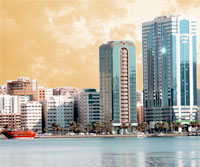
There are an enormous amount of reasons to learn Arabic, According to the Foreign Service Institute (FSI) of the US Department of State, of the 63 languages analyzed, Arabic is one of the five most difficult languages to reach proficiency in speaking and reading for native English-speakers.
Learning Arabic is no walk in the park, even if you already display a good aptitude for formal language study. It takes time, practice, and a lot of commitment and energy. So why should you consider learning Arabic?
1. Arabic is the 5th most spoken language in the world.
More than 450 million people speak or understand Arabic. The Arabic Language is the official language of over twenty countries from Northern Africa and throughout the Middle East which makes it the fifth most spoken language in the world.
2. Arabic is the liturgical language of Islam.
The Arabic language and Islam are intertwined and closely connected. It is the language in which the holy book of Islam “Qur’an” was revealed. Therefore, it’s a language known to many millions of Muslims throughout the world.

3. The need for Arabic in fast-growing markets.
The knowledge of the Arabic language opens numerous potential doors for new business opportunities. The Arab region with its rapidly growing population provides a huge export market for goods and services. With a GDP of over 600 billion dollars annually, the region also has much to offer the world market. In order to do business effectively, one must understand the language and culture of the people with whom he or she is hoping to negotiate and conduct trade.
Knowing, even a few words of, Arabic will give you an advantage over your competitors, save yourself social and cultural stress, and, most of all, avoid or minimize costly business mistakes. People in Arabic countries feel appreciated and admire those who take the extra step to learn their language – even when it’s just a simple greeting – Because It shows your commitment to doing business with them.
Speaking Arabic as a foreign language is an asset for multiplying your chances in the international hunt for employment. In fact, there is an increasing need for Arabic-speaking talents to fill the gap in the job market which makes Arabic a very interesting and important language in today’s geo-political world.
4. Learning Arabic brings different cultures closer together
Arabic is one of the oldest languages has its seeds have been sowed even before the sixth century. It has a very rich history and is one of the toughest languages you will come across. Learning Arabic will help you explore and better understand the culture and history of ancient Middle Eastern countries. It will give you the possibility to learn more about their traditions, habits, and religion.
Furthermore, today in many European and North American countries, there is a strong presence of Arabic-speaking communities. However, there is a noticeable lack of Westerners who speak Arabic in many of these countries, not to mention some of the South American countries. Learning Arabic will help destroy common prejudices, bridging that gap, and providing an opportunity for better cooperation, integration, and intercultural understanding.
“If you talk to a man in a language he understands, that goes to his head. If you talk to him in his language, that goes to his heart.”
– Nelson Mandela –
5. The Arabic language helps you travel and discover the world
If you wish to travel to Middle Eastern or North African countries and learn about their history and culture, as is the case with Egypt and Morocco, acquiring even a basic knowledge of Arabic can significantly enhance your travel experience. This additional language skill can make your visit more pleasant and enjoyable.

Hi Farhan,
Thanks for your feedback. I hope you’re having fun and good luck with your goal.
Regards,
Rachid
Hi Rachid,
Kaifahaalak! AsI’m begineer to learn arabic the articles are so useful. Thanks for your posts.
Thanks,
Farhan
Hi Olive,
I appreciate your great feedback and congratulation on your success. Regarding your questions, I’m definitely planing on dedicating a post or two to Arabic business matters. I think this is a great subject and a lot of people would be interested to learn about it. When It comes to Arabic greetings and styles. I think that is a very wide subject. As you may have notice, greetings and gestures are sometimes different from one country to another due to either religious or cultural customs .
Concerning the example you’ve listed when a person sneezes in Arabic is literately the same as in English “bless you!” which translate into Arabic as “Yarhamuka allah” or “Rahimaka allah”. Obviously, there is more into this than just that but I will try to cover it in a later post as well (Hopefully time permits as I’m planning on getting may GMAT soon for MBA).
Regards
Hi Rachid,
Having obtained an intermediate standard of arabic through study at university I have managed to procure emplyment in the Gulf for which I am very pleased. I should very much appreciate a post on business arabic with vocabulary such as ‘contract/agreement/trade/exchange/etc’ in addition to phrases that one might be able to directly utilize in a business context.
Lastly, a post that dealt with arabic etiquette would be most useful. For example I have seen many different greeting styles varying from handshakes to kisses and rubbing of noses in the region. What relationship levels differentiate between the gestures? Also what is polite conduct if a person sneezes (for instance in english we might say ‘bless you’ is there an arabic equivalent?).
Many thanks for a great website and apologies for the long post/list of requests!
Kind regards,
Oliver